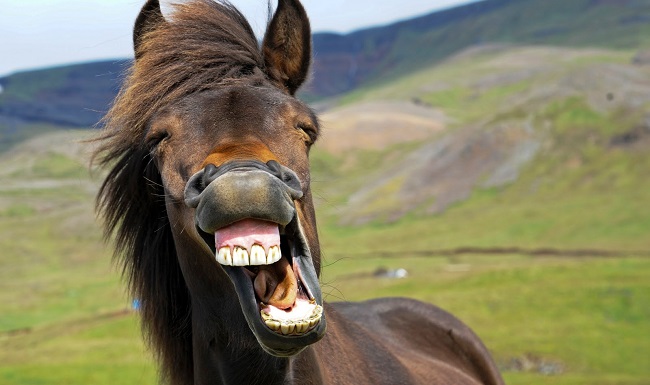Horses, known for their majestic beauty and grace, also possess a unique communication style. Besides body language, horses use a variety of sounds to express their feelings, intentions, and warnings to humans and other horses.
These sounds form an integral part of understanding equine behavior and facilitating human-horse bonding. This article delves into the fascinating world of horse sounds and their meanings.

Understanding the Sounds that Horses Make
Here you will find out about the sounds that horses make:
Read Also:
1. Neigh/Whinny
This sound is the classic horse call that people often imitate, and it usually lasts for a few seconds. Horses use this high-pitched sound to express various emotions, ranging from excitement or anxiety to a call for attention or response from other horses.
2. Nickering
A nicker is a softer, more intimate sound often shared between a mare and her foal or between horses that are friends. Humans may also hear a nicker when a horse greets them, especially if expecting a treat.
3. Snorting
Horses make this sound by exhaling sharply through their nostrils. It often signifies a horse’s curiosity or alertness to something unfamiliar in their environment. Snorting can also indicate a state of relaxation when a horse is at ease.
4. Squealing
This high-pitched, prolonged sound is often associated with aggression or submission, typically seen when unfamiliar horses meet or during mating rituals.
5. Roaring (or Stridor)
This is a less common sound, often indicative of a medical condition known as ‘roaring’ or laryngeal hemiplegia. A horse making this noise should be examined by a veterinarian.
6. Blowing
This sound is similar to snorting but is longer and louder. Horses often blow to show alertness or excitement, or they may blow out excess dust when exploring a new place.
7. Groaning
Horses may groan when they’re in discomfort or pain, often related to physical exertion or potential health issues. It’s important to consult a vet if a horse groans regularly.
The Role of Sounds in Equine Communication
Understanding these sounds not only provides insight into a horse’s emotional state but also aids in early detection of possible health issues.
Just like humans, horses use these sounds as a means of communication, expressing their needs, fears, happiness, and even their social interactions with other horses.
Grunts and Growls
In addition to the more commonly known sounds, horses also make several less-recognized noises.
Grunting
Grunting is a low, throaty sound made by some horses when they’re exerting themselves, particularly during strenuous physical activity. This is more commonly observed in sports horses during training or competitions.
Growling
While it’s not a sound commonly associated with horses, some do growl when they’re annoyed or threatened. It’s a low, rumbling sound that serves as a warning.
Horse Sounds and Human Interaction
The way horses communicate with humans is often different from their communication with other horses. Understanding these nuances can help foster stronger human-horse relationships.
Greeting Humans
Horses often greet their human friends with soft nickers, especially if they associate them with positive experiences like feeding or grooming.
Expressing Discomfort
Horses may also use sounds to express discomfort or distress to humans. Increased frequency or intensity of certain sounds, like groaning or grunting, may indicate health problems.
Sound Patterns and Horse Personality
Just as humans have unique voices and expressions, horses also have distinctive sound patterns that can provide insight into their personalities.
Consistent Sounds
Some horses consistently use certain sounds more than others, indicating their typical emotional state. For example, a horse that often nickers might be friendly and sociable, while one that frequently squeals could be more anxious or aggressive.
Changes in Sound
Changes in a horse’s typical sound pattern can signal changes in its health or mood. For instance, a usually quiet horse that starts to whinny loudly may be feeling stressed or unwell.
Read Also:
Conclusion
Horse sounds are an intriguing blend of language and emotions that help us understand these noble creatures better.
Whether it’s a soft nicker to a beloved companion, a sharp snort signaling alertness, or a joyful neigh, each sound is a testament to the rich emotional world of horses.
By learning their unique language, we can deepen our bond with these wonderful animals and ensure their well-being.
























